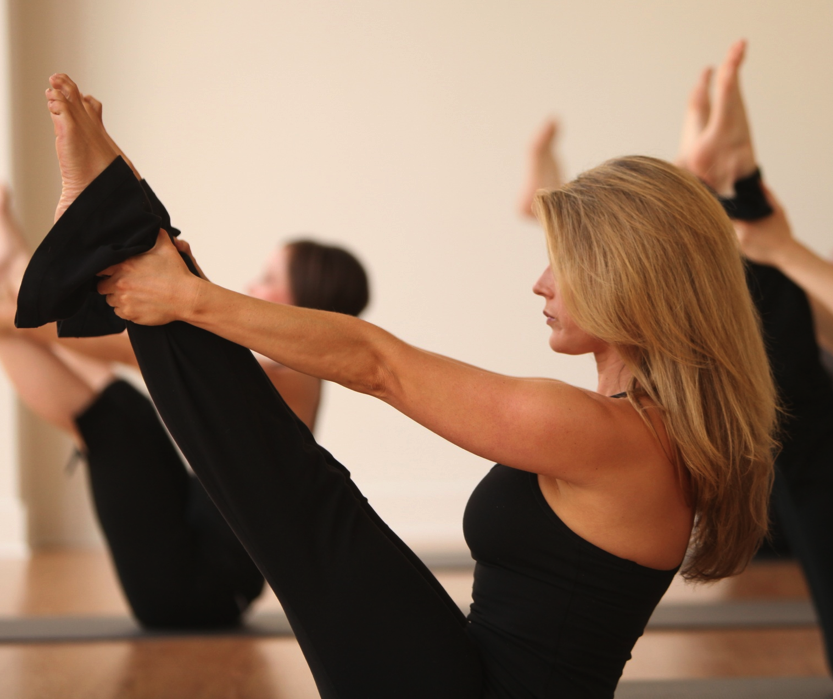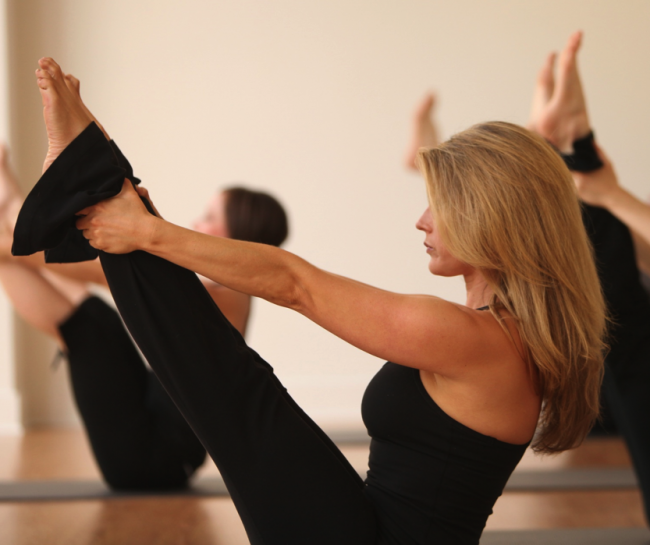
Staying physically active is one of the best ways to prevent weight gain. (Photo courtesy of Classic Pilates Studio)
We have all heard the cliche about students starting college and coming home with an infamous amount of weight gain during their first year of college, also known as the “Freshman 15.”
Sadly, it’s not an urban legend.
Many students, particuarly women, who struggle with their weight as adults trace those first extra pounds back to college.
A time when they chose to enjoy their newfound freedom from parental supervision by ingesting an extra 400 or more calories a day.
Chalk it up to the all-you-can-eat cafeteria food, late night study sessions that always seem to feature pizza or candy and the still off-limits but somehow perpetually available adult beverages.
College is the first time most people have any independence from their parents.
They have to wake themselves up, or not, in time to get to class. They have to get their work done on time. They get to decide how they spend their weekends.
And they get to decide what and when they eat.
Unfortunately, if that independence isn’t reined in by strong self-discipline, it can wreak havoc on one’s health.
Right now, as a college student with a respectable metabolism, it’s the time to lock in healthy habits and break the bad ones that will weigh you down and fill you with regret much sooner than you think.
Maintaining a healthy weight has three main components: proper sleep habits, good nutrition and physical activity.
I know. You are in college.
Having any one of those, let alone all three, seems next to impossible. But it’s not.
In fact, they each feed off one another.
Getting enough rest will help you eat better, and both of those give you the energy to be physically active, which helps you sleep better. It’s a virtuous cycle.
I’ll leave the sleep hygiene and proper nutrition to the experts in those fields. My field is physical fitness.
One of the reasons many college students may stop exercising is that the activities that kept them fit in high school are no longer a part of their lives.
But just because you don’t have cheerleading, dance or tennis team practice anymore doesn’t mean there is nothing else out there to keep you active.
In fact, college actually opens up a new world of physical activity. First, most campuses offer several different kinds of intramural teams that you can get involved in almost immediately.
Many even offer PE classes for credit that can teach you a new sport.
Take advantage of being surrounded by young, energetic, adventurous friends who are probably willing to try something new with you.
Always make sure to include core strengthening in your regular workout regimen.
Pilates, the fitness system invented by Joseph Pilates in the 1920s, offers amazing core and all-over strengthening, as well as increased flexibility.
Many athletes find that Pilates is an excellent cross-training system and gives them added stability and strength that improves their performance and stamina.
Not to mention it is also a favorite of many celebrities, such as Matt Damon, Miley Cyrus and Emily Blunt.
Physical activity not only helps improve fitness and burn calories, but it has an added bonus for students. It increases blood flow to the brain which can actually improve academic performance.
Multiple studies have shown the benefits of physical activity on memory, focus, problem-solving and test-taking.
Rather than pulling an all-nighter and downing a pot of coffee, take a Pilates class or go for a run.
You may not fully appreciate it right now, but you will probably never be as fit as you are today.
The people who are living healthy lifestyles are the ones who established good health habits early and made them part of their daily lives.
There’s no reason that can’t be you.
Rachael Lieck Bryce is the co-owner of Classic Pilates (www.classicpilatesstudio.com) and a certified Pilates instructor.









